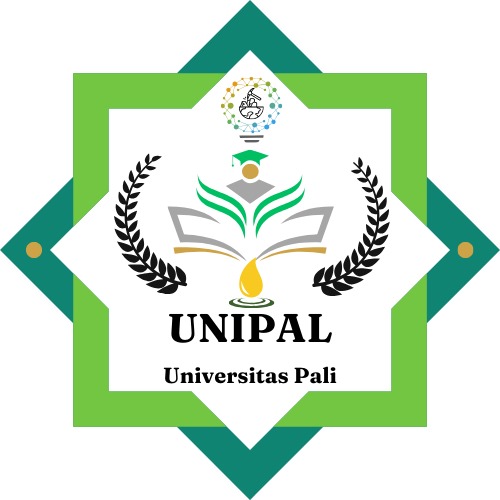Community-Based Empowerment and the Philosophy of Pobhinci-Bhinciki Kuli in Makassar Island
Keywords:
community empowerment, social capital, local wisdom, Pobhinci-Bhinciki Kuli, participatory developmentAbstract
Purpose – This study aims to explore the potential of social and cultural capital in the empowerment of fisher communities on Makassar Island by highlighting the local philosophy of Pobhinci-Bhinciki Kuli, a traditional value system rooted in the Butonese community. The research addresses the lack of integrated and culturally grounded empowerment strategies in marginal coastal areas, which often leads to ineffective interventions and sustained poverty.
Design/methods/approach – This qualitative case study employed an ethnographic approach involving field observations, in-depth interviews with community members, local leaders, and religious figures, as well as document analysis and participatory conversations. Data were collected in situ and analyzed thematically using iterative coding, enabling a deep understanding of how local values shape social relations and support informal empowerment structures.
Findings – The study reveals that the values of Pobhinci-Bhinciki Kuli—mutual respect, care, affection, and collective responsibility—are deeply embedded in daily interactions and function as informal mechanisms of mutual aid and resilience. However, current empowerment programs remain fragmented, focusing mainly on funding and technical training without addressing structural and cultural contexts. This disconnect limits the sustainability and relevance of the initiatives.
Research implications/limitations – The context-specific nature of the study limits its generalizability to other regions. Additionally, the reliance on qualitative data means findings are interpretive and may require triangulation through quantitative approaches in future research.
Originality/value – This study contributes to the discourse on community-based development by offering an indigenous knowledge-based framework for empowerment. It emphasizes a two-track approach that combines top-down policy involvement with bottom-up community participation for more sustainable outcomes.
References
Achsanuddin, A. N. (2018). Pengaruh Pembangunan Center Point of Indonesia (Cpi) Terhadap Perekonomian Masyarakat Pesisir Di Kecamatan Mariso Kota Makassar. Jurnal Economic Resource, 1(1), 60–70. https://doi.org/10.33096/jer.v1i1.54
Ahmed, I., Ayeb‐Karlsson, S., Geest, K. v. d., Huq, S., & Jordan, J. C. (2019). Climate Change, Environmental Stress and Loss of Livelihoods Can Push People Towards Illegal Activities: A Case Study From Coastal Bangladesh. Climate and Development, 11(10), 907–917. https://doi.org/10.1080/17565529.2019.1586638
Apine, E., Turner, L. M., Rodwell, L. D., & Bhatta, R. (2019). The Application of the Sustainable Livelihood Approach to Small Scale-Fisheries: The Case of Mud Crab Scylla Serrata in South West India. Ocean & Coastal Management, 170, 17–28. https://doi.org/10.1016/j.ocecoaman.2018.12.024
Bayugo, Y. V., Labarda, M., Cruz, J. R. B., Mier-Alpaño, J. D., Tiangco, P. M. P., Oyene, U. E., Omoleke, S. A., Ulitin, A., Ong, A., Fajardo, M. S., Echavarría, M. I., Alger, J., Mathanga, D. P., Msiska, B. K., Ekwunife, O. I., Nwaorgu, O. C., Lizcano, L. A., Quenguan, N. G., Anderson, C. N., … Juban, N. (2022). Description of Global Innovative Methods in Developing the WHO Community Engagement Package. BMJ Open, 12(6), e063144. https://doi.org/10.1136/bmjopen-2022-063144
Chen, E., Leos, C., Kowitt, S. D., & Moracco, K. E. (2019). Enhancing Community-Based Participatory Research Through Human-Centered Design Strategies. Health Promotion Practice, 21(1), 37–48. https://doi.org/10.1177/1524839919850557
Colovic, A., & Schruoffeneger, M. (2021). Institutional Voids and Business Model Innovation: How Grassroots Social Businesses Advance Deprived Communities in Emerging Economies. Management and Organization Review, 17(2), 314–343. https://doi.org/10.1017/mor.2020.66
Fabinyi, M. (2018). Food and Water Insecurity in Specialised Fishing Communities: Evidence From ThePhilippines. Natural Resources Forum, 42(4), 243–253. https://doi.org/10.1111/1477-8947.12148
Kim, H., Sefcik, J. S., & Bradway, C. (2016). Characteristics of Qualitative Descriptive Studies: A Systematic Review. Research in Nursing & Health, 40(1), 23–42. https://doi.org/10.1002/nur.21768
Kristiningrum, R., Sari, W. I., & Chaniago, H. D. (2023). Performance of Sustainable Livelihoods Assets in Coastal Communities in Dealing With Climate Change: A Case Study at Kuaro District, Paser Regency. Iop Conference Series Earth and Environmental Science, 1282(1), 012012. https://doi.org/10.1088/1755-1315/1282/1/012012
Lenhoff, S. W., Edwards, E. B., Claiborne, J., Singer, J., & French, K. R. (2020). A Collaborative Problem-Solving Approach to Improving District Attendance Policy. Educational Policy, 36(6), 1464–1506. https://doi.org/10.1177/0895904820974402
Maldonado-Mariscal, K. (2023). Grassroots Innovation and Social Innovation in Perspective. Frontiers in Sociology, 8. https://doi.org/10.3389/fsoc.2023.1247293
Martínez, M. G. (2017). Inspiring Crowdsourcing Communities to Create Novel Solutions: Competition Design and the Mediating Role of Trust. Technological Forecasting and Social Change, 117, 296–304. https://doi.org/10.1016/j.techfore.2016.11.015
Mozumder, M. M. H., Uddin, M. M., Schneider, P., Deb, D., Hasan, M., Saif, S. B., & Nur, A.-A. U. (2023). Governance of Illegal, Unreported, and Unregulated (IUU) Fishing in Bangladesh: Status, Challenges, and Potentials. Frontiers in Marine Science, 10. https://doi.org/10.3389/fmars.2023.1150213
Muringai, R. T., Naidoo, D., Mafongoya, P., & Lottering, S. (2019). The Impacts of Climate Change on the Livelihood and Food Security of Small-Scale Fishers in Lake Kariba, Zimbabwe. Journal of Asian and African Studies, 55(2), 298–313. https://doi.org/10.1177/0021909619875769
Neumeier, S. (2016). Social Innovation in Rural Development: Identifying the Key Factors of Success. Geographical Journal, 183(1), 34–46. https://doi.org/10.1111/geoj.12180
Osei, C. D., & Zhuang, J. (2020). Rural Poverty Alleviation Strategies and Social Capital Link: The Mediation Role of Women Entrepreneurship and Social Innovation. Sage Open, 10(2). https://doi.org/10.1177/2158244020925504
Podgorskaya, S., & Schitov, S. (2021). The Role and Importance of Social Capital in Rural Development. E3s Web of Conferences, 273, 08072. https://doi.org/10.1051/e3sconf/202127308072
Poucher, Z. A., Tamminen, K. A., Caron, J. G., & Sweet, S. N. (2019). Thinking Through and Designing Qualitative Research Studies: A Focused Mapping Review of 30 Years of Qualitative Research in Sport Psychology. International Review of Sport and Exercise Psychology, 13(1), 163–186. https://doi.org/10.1080/1750984x.2019.1656276
Rendle, K. A., Abramson, C. M., Garrett, S. B., Halley, M. C., & Dohan, D. (2019). Beyond Exploratory: A Tailored Framework for Designing and Assessing Qualitative Health Research. BMJ Open, 9(8), e030123. https://doi.org/10.1136/bmjopen-2019-030123
Su, F., Song, N., Ma, N., Sultanaliev, A., Ma, J., Xue, B., & Fahad, S. (2021). An Assessment of Poverty Alleviation Measures and Sustainable Livelihood Capability of Farm Households in Rural China: A Sustainable Livelihood Approach. Agriculture, 11(12), 1230. https://doi.org/10.3390/agriculture11121230
Zinda, J. A., & Zhang, Z. (2017). Land Tenure Legacies, Household Life Cycles, and Livelihood Strategies in Upland China. Rural Sociology, 83(1), 51–80. https://doi.org/10.1111/ruso.12164
Downloads
Published
How to Cite
Issue
Section
License
Copyright (c) 2025 Muhammad Khalil

This work is licensed under a Creative Commons Attribution-ShareAlike 4.0 International License.















